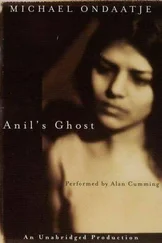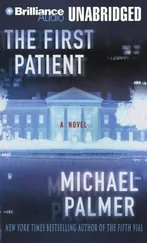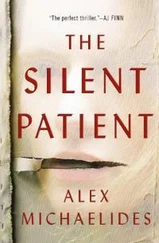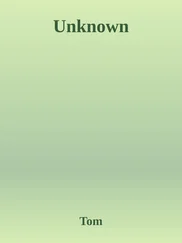Michael Ondaatje - The English Patient
Здесь есть возможность читать онлайн «Michael Ondaatje - The English Patient» весь текст электронной книги совершенно бесплатно (целиком полную версию без сокращений). В некоторых случаях можно слушать аудио, скачать через торрент в формате fb2 и присутствует краткое содержание. Жанр: Старинная литература, на русском языке. Описание произведения, (предисловие) а так же отзывы посетителей доступны на портале библиотеки ЛибКат.
- Название:The English Patient
- Автор:
- Жанр:
- Год:неизвестен
- ISBN:нет данных
- Рейтинг книги:4 / 5. Голосов: 1
-
Избранное:Добавить в избранное
- Отзывы:
-
Ваша оценка:
- 80
- 1
- 2
- 3
- 4
- 5
The English Patient: краткое содержание, описание и аннотация
Предлагаем к чтению аннотацию, описание, краткое содержание или предисловие (зависит от того, что написал сам автор книги «The English Patient»). Если вы не нашли необходимую информацию о книге — напишите в комментариях, мы постараемся отыскать её.
The English Patient — читать онлайн бесплатно полную книгу (весь текст) целиком
Ниже представлен текст книги, разбитый по страницам. Система сохранения места последней прочитанной страницы, позволяет с удобством читать онлайн бесплатно книгу «The English Patient», без необходимости каждый раз заново искать на чём Вы остановились. Поставьте закладку, и сможете в любой момент перейти на страницу, на которой закончили чтение.
Интервал:
Закладка:
But now he cannot bear this wall in her. You built your walls too, she tells him, so I have my wall. She says it glittering in a beauty he cannot stand. She with her beautiful clothes, with her pale face that laughs at everyone who smiles at her, with the uncertain grin for his angry jokes. He continues his appalling statements about this and that in some expedition they are all familiar with.
The minute she turns away from him in the lobby of Groppi’s bar after he greets her, he is insane. He knows the only way he can accept losing her is if he can continue to hold her or be held by her. If they can somehow nurse each other out of this. Not with a wall.
Sunlight pours into his Cairo room. His hand flabby over the Herodotus journal, all the tension in the rest of his body, so he writes words down wrong, the pen sprawling as if without spine. He can hardly write down the word sunlight . The words in love .
In the apartment there is light only from the river and the desert beyond it. It falls upon her neck her feet the vaccination scar he loves on her right arm. She sits on the bed hugging nakedness. He slides his open palm along the sweat of her shoulder. This is my shoulder, he thinks, not her husband’s, this is my shoulder. As lovers they have offered parts of their bodies to each other, like this. In this room on the periphery of the river.
In the few hours they have, the room has darkened to this pitch of light. Just river and desert light. Only when there is the rare shock of rain do they go towards the window and put their arms out, stretching, to bathe as much as they can of themselves in it. Shouts towards the brief downpour fill the streets.
“We will never love each other again. We can never see each other again.”
“I know,” he says.
The night of her insistence on parting.
She sits, enclosed within herself, in the armour of her terrible conscience. He is unable to reach through it. Only his body is close to her.
“Never again. Whatever happens.”
“Yes.”
“I think he will go mad. Do you understand?”
He says nothing, abandoning the attempt to pull her within him.
An hour later they walk into a dry night. They can hear the gramophone songs in the distance from the Music for All cinema, its windows open for the heat. They will have to part before that closes up and people she might know emerge from there.
They are in the botanical garden, near the Cathedral of All Saints. She sees one tear and leans forward and licks it, taking it into her mouth. As she has taken the blood from his hand when he cut himself cooking for her. Blood. Tear. He feels everything is missing from his body, feels he contains smoke. All that is alive is the knowledge of future desire and want. What he would say he cannot say to this woman whose openness is like a wound, whose youth is not mortal yet. He cannot alter what he loves most in her, her lack of compromise, where the romance of the poems she loves still sits with ease in the real world. Outside these qualities he knows there is no order in the world.
This night of her insistence. Twenty-eighth of September. The rain in the trees already dried by hot moonlight. Not one cool drop to fall down upon him like a tear. This parting at Groppi Park. He has not asked if her husband is home in that high square of light, across the street.
He sees the tall row of traveller’s palms above them, their outstretched wrists. The way her head and hair were above him, when she was his lover.
Now there is no kiss. Just one embrace. He untugs himself from her and walks away, then turns. She is still there. He comes back within a few yards of her, one finger raised to make a point.
“I just want you to know. I don’t miss you yet.”
His face awful to her, trying to smile. Her head sweeps away from him and hits the side of the gatepost. He sees it hurt her, notices the wince. But they have separated already into themselves now, the walls up at her insistence. Her jerk, her pain, is accidental, is intentional. Her hand is near her temple.
“You will,” she says.
From this point on in our lives, she had whispered to him earlier, we will either find or lose our souls.
How does this happen? To fall in love and be disassembled.
I was in her arms. I had pushed the sleeve of her shirt up to the shoulder so I could see her vaccination scar. I love this, I said. This pale aureole on her arm. I see the instrument scratch and then punch the serum within her and then release itself, free of her skin, years ago, when she was nine years old, in a school gymnasium.
VI
A Buried Plane
HE GLARES OUT, each eye a path, down the long bed at the end of which is Hana. After she has bathed him she breaks the tip off an ampoule and turns to him with the morphine. An effigy. A bed. He rides the boat of morphine. It races in him, imploding time and geography the way maps compress the world onto a two-dimensional sheet of paper.
The long Cairo evenings. The sea of night sky, hawks in rows until they are released at dusk, arcing towards the last colour of the desert. A unison of performance like a handful of thrown seed.
In that city in 1936 you could buy anything—from a dog or a bird that came at one pitch of a whistle, to those terrible leashes that slipped over the smallest finger of a woman so she was tethered to you in a crowded market.
In the northeast section of Cairo was the great courtyard of religious students, and beyond it the Khan el Khalili bazaar. Above the narrow streets we looked down upon cats on the corrugated tin roofs who also looked down the next ten feet to the street and stalls. Above all this was our room. Windows open to minarets, feluccas, cats, tremendous noise. She spoke to me of her childhood gardens. When she couldn’t sleep she drew her mother’s garden for me, word by word, bed by bed, the December ice over the fish pond, the creak of rose trellises. She would take my wrist at the confluence of veins and guide it onto the hollow indentation at her neck.
March 1937, Uweinat. Madox is irritable because of the thinness in the air. Fifteen hundred feet above sea level and he is uncomfortable with even this minimal height. He is a desert man after all, having left his family’s village of Marston Magna, Somerset, altered all customs and habits so he can have the proximity to sea level as well as regular dryness.
“Madox, what is the name of that hollow at the base of a woman’s neck? At the front. Here . What is it, does it have an official name? That hollow about the size of an impress of your thumb?”
Madox watches me for a moment through the noon glare.
“Pull yourself together,” he mutters.
Let me tell you a story,” Caravaggio says to Hana. “There was a Hungarian named Almásy, who worked for the Germans during the war. He flew a bit with the Afrika Korps, but he was more valuable than that. In the 1930s he had been one of the great desert explorers. He knew every water hole and had helped map the Sand Sea. He knew all about the desert. He knew all about dialects. Does this sound familiar? Between the two wars he was always on expeditions out of Cairo. One was to search for Zerzura—the lost oasis. Then when war broke out he joined the Germans. In 1941 he became a guide for spies, taking them across the desert into Cairo. What I want to tell you is, I think the English patient is not English.”
“Of course he is, what about all those flower beds in Gloucestershire?”
“Precisely. It’s all a perfect background. Two nights ago, when we were trying to name the dog. Remember?”
“Yes.”
“What were his suggestions?”
“He was strange that night.”
“He was very strange, because I gave him an extra dose of morphine. Do you remember the names? He put out about eight names. Five of them were obvious jokes. Then three names. Cicero. Zerzura. Delilah.”
Читать дальшеИнтервал:
Закладка:
Похожие книги на «The English Patient»
Представляем Вашему вниманию похожие книги на «The English Patient» списком для выбора. Мы отобрали схожую по названию и смыслу литературу в надежде предоставить читателям больше вариантов отыскать новые, интересные, ещё непрочитанные произведения.
Обсуждение, отзывы о книге «The English Patient» и просто собственные мнения читателей. Оставьте ваши комментарии, напишите, что Вы думаете о произведении, его смысле или главных героях. Укажите что конкретно понравилось, а что нет, и почему Вы так считаете.












